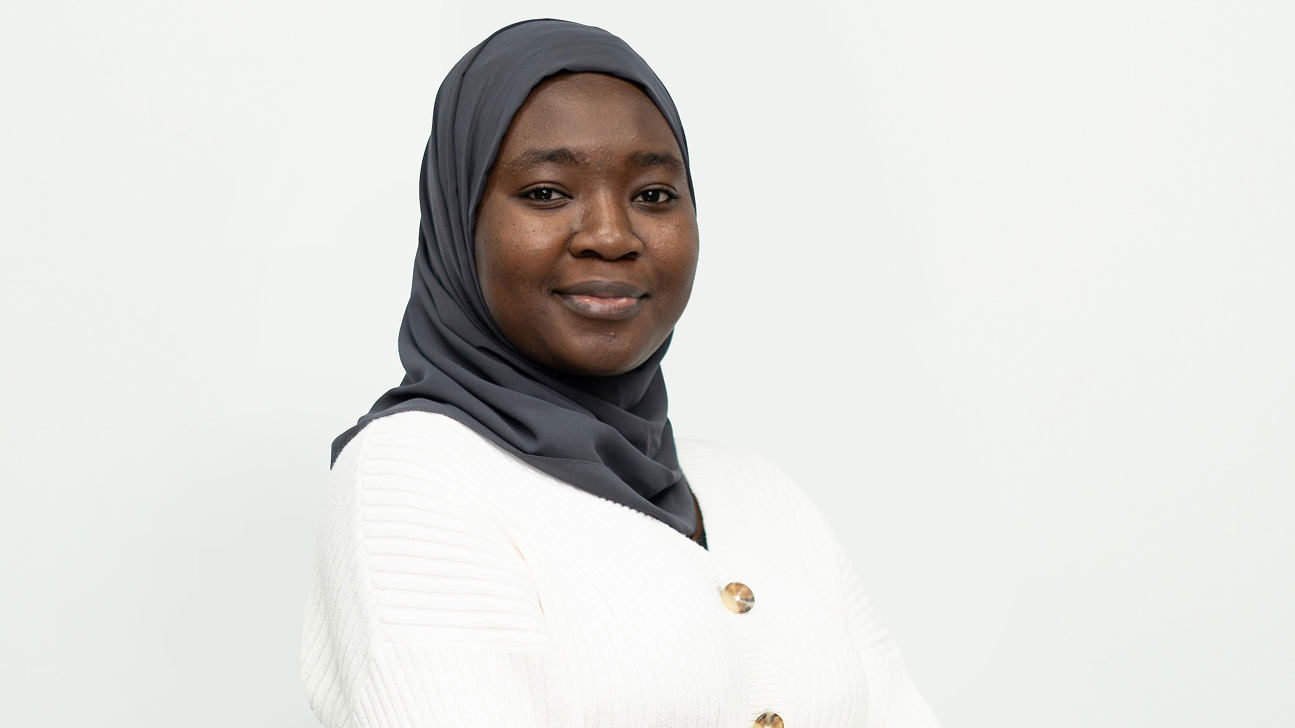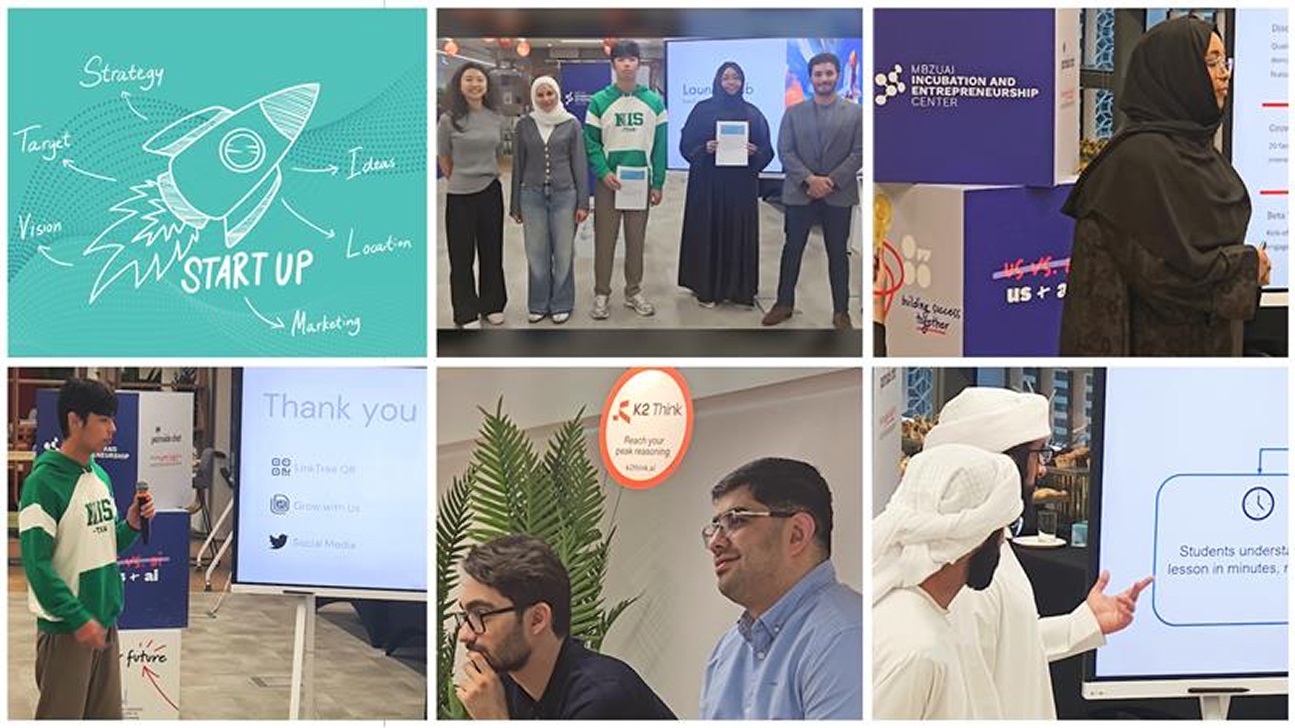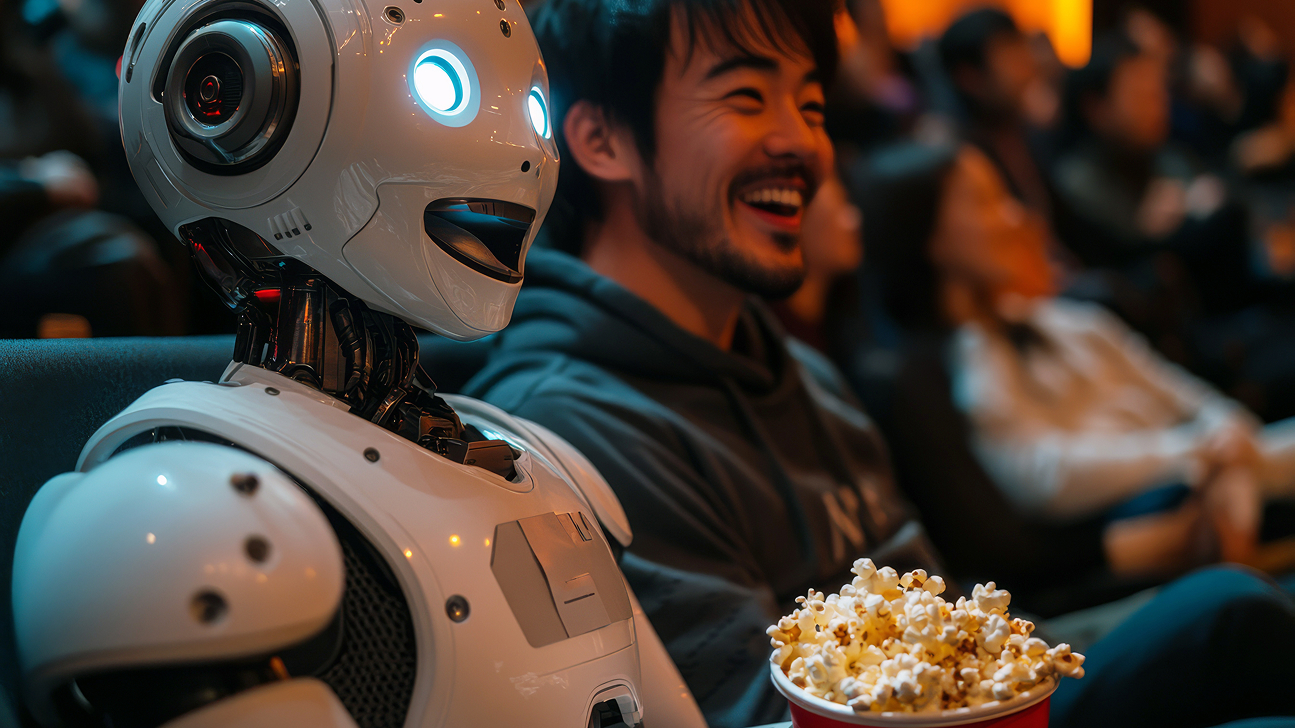AI researcher tackles stuttering diagnosis in the developing world
Tuesday, July 22, 2025

Stuttering is a relatively common condition, yet it remains undiagnosed and untreated in many developing countries. MBZUAI doctoral student Hawau Toyin never saw it as an impairment growing up in Nigeria, but now, she is dedicating her Ph.D. research to applying artificial intelligence (AI) to the identification, correction, and evaluation of stuttering.
“Growing up, I knew someone that stuttered,” Toyin says. “In my culture, we don’t see stuttering as something that needs to be treated. If a child is born and the child stutters, then it’s okay.”
Her research aims to raise awareness of the importance of treating speech impediments, especially in regions where speech pathology services are scarce.
AI for good: from inspiration to application
Toyin discovered the opportunity to explore AI-based solutions for stuttering during her Master’s in Machine Learning at MBZUAI. It was immediately clear to her that this field held the potential to create real, measurable impact.
Now in the second year of her Ph.D. in Natural Language Processing (NLP), Toyin is collaborating with the SpeechCare Center UAE and her doctoral advisor, Dr. Hanan Aldarmaki, MBZUAI’s director for the Center of Teaching and Learning and assistant professor of NLP. Together, they are working to develop AI tools for faster, more accessible diagnosis and treatment for speech disorders, beginning with stuttering.
Understanding stuttering and its impacts
The National Stuttering Association (NSA) defines stuttering as “a speech pattern involving involuntary disruptions, or ‘disfluencies’, in the forward flow of speech”. Around 1% of the world’s population lives with a stutter. While about 5% of children experience stuttering between the ages of two and five, many naturally grow out of developmental stuttering.
Charles Sturt University (CSU) lecturer and speech pathologist, Jessie Anderson, said undiagnosed or untreated stuttering can significantly impact a person’s life, and supports the integration of the right technologies into the field.
“Depending on the type and cause, most children naturally outgrow stuttering,” she explains. “However, persistent stuttering can significantly impact various aspects of a person’s life including education, career progression, and social relationships. They may experience or suffer from communication and relationship breakdowns, reduced self-esteem, or social isolation.”
Barriers to diagnosis: data, access, and complexity
Toyin is currently focused on the data collection phase, which she describes as a major challenge. “We are collecting data from all over the world,” she says. “The clinical data is expensive to access, and it is not properly labelled. We need good annotations from the clinicians themselves to be able to build an effective AI system.”
Stuttering takes various forms, including blocks, repetitions, and prolongations. Speech therapists must observe patients over time, using both audio and video, to evaluate patterns. “Diagnosis involves assessing auditory speech and additional factors like genetics, neurological issues such as stroke, facial tension or movements, and psychological causes such as trauma,” Anderson adds.
Presenting at Interspeech 2025
Toyin and her team will present their latest work, titled “Clinical Annotations for Automatic Stuttering Severity Assessment”, at the Interspeech Conference 2025 in Rotterdam, taking place from August 17 to 21. The paper highlights the importance of clean, labelled data to build effective AI models.
“We took existing data from a podcast and labelled it correctly,” she says. “Some recordings are only a few seconds which is not long enough for a human to assess the type of stutter but together with other data, the model may be able to generalize.”
When enough data is collected, an English model will be trained and retrained periodically to detect specific types and severity of stuttering. The next step is to test how well the model performs across different English accents, with the long-term goal of expanding into other languages, especially Arabic.
Arabic early work and giving back
Despite not speaking the language, Toyin’s background in Arabic NLP began during her master’s with a joint paper, “ArTST: Arabic Text and Speech Transformer”, winning Best Paper Award at ArabicNLP 2023. Two years later and the follow up paper, “Dialectal Coverage And Generalization in Arabic Speech Recognition”, has been accepted at the Association for Computational Linguistics (ACL 2025) – the highest ranked venue for NLP – to be held in Vienna from July 27 to August 1.
The research has been a large body of work with Aldarmaki and fellow Ph.D. student Amirbek Djanibekov. The latest models support various Arabic dialects and code-switching with foreign languages. They are available on GitHub and Hugging Face.
Toyin said Aldarmaki, MBZUAI’s first Emirati faculty member, has guided and inspired her work, having also undertaken a research assistantship last summer in her Speech Lab. “Working on advancing the Arabic language in speech technology and tackling dialectal diversity is my way of giving back to the UAE,” she says.
Academic drive and global purpose
The first engineer in her family, Toyin said her work has always been difficult to explain to her parents – until now. “I want them to understand the benefits it will bring to society,” she says.
Her goal is to create research that not only advances academic understanding but can also be shared with the wider public in a meaningful way. This is what drives her. Toyin says she envisages her future embedded in academia or industry research.
Toyin’s journey at MBZUAI highlights the interdisciplinary nature of the University’s AI curriculum and research, having originally studied machine learning under the supervision of computer vision and NLP faculty, before commencing her Ph.D. in NLP. Since the inaugural Class of 2022, Toyin is one of 69 alumni to stay at MBZUAI and pursue a doctorate.
Toyin served as a member of the MBZUAI Alumni Advisory Board (MAAB) and mentors fellow students, sharing her guiding principle in life: “It’s better to have it and not need it than to need it and not have it.”
Related
MBZUAI's Launch Lab equips alumni and students with practical startup tools
The six-week pilot program brought alumni and students together to turn early startup ideas into tangible ventures.
- launch lab ,
- alumni relations ,
- startups ,
- alumni ,
- entrepreneurship ,
Teaching language models about Arab culture through cross-cultural transfer
New research from MBZUAI shows how small, targeted demonstrations can sharpen AI cultural reasoning across the Arab.....
Read MoreAI and the silver screen: how cinema has imagined intelligent machines
Movies have given audiences countless visions of how artificial intelligence might affect our lives. Here are some.....
- artificial intelligence ,
- cinema ,
- art ,
- fiction ,
- science fiction ,
- AI ,


